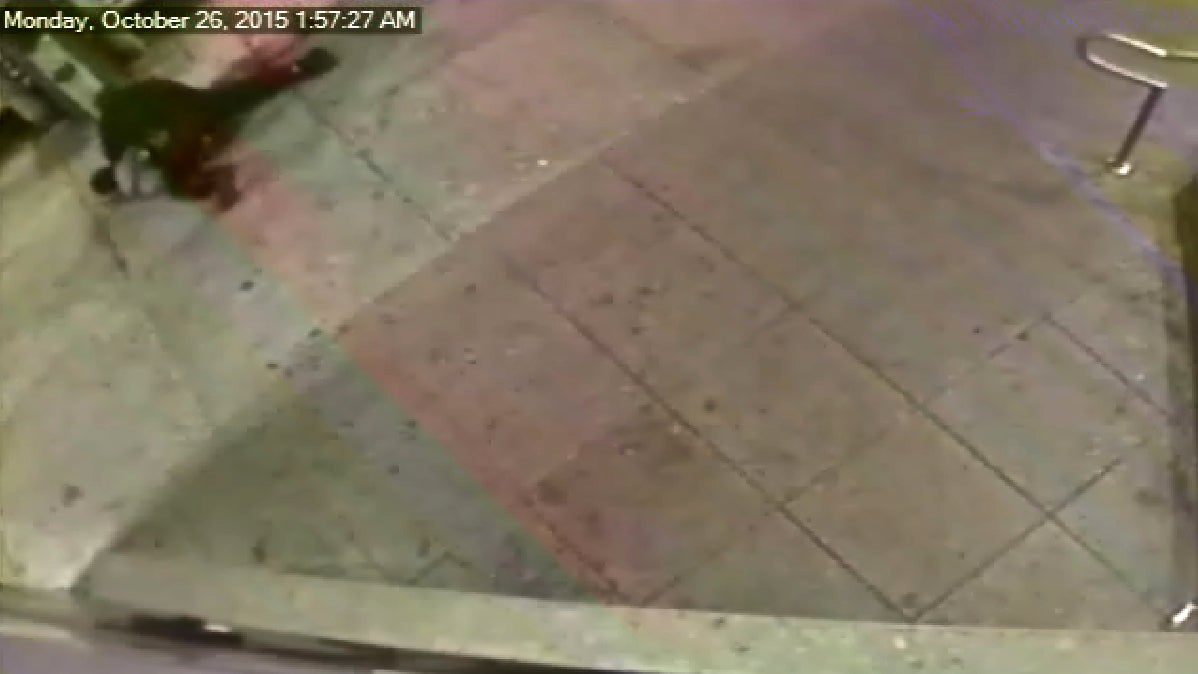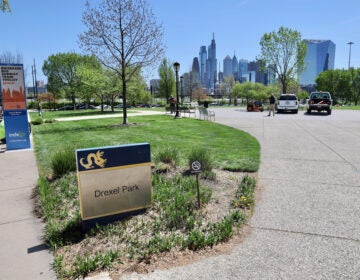SEPTA officer cleared, another disciplined in death of man stunned 10 times
Listen
A frame from a SEPTA surveillance video shows Omar Lopez struggling with a transit officer at the Huntingdon station in Kensington. Lopez later died in custody. (Image via SEPTA)
No one will be fired in connection with the death of a 24-year-old Philadelphia man who died after a SEPTA officer fired a stun gun at him 10 times, transit officials said Monday.
Officials released the findings of SEPTA’s internal investigation citing the medical examiner’s determination that Omar Lopez, 24, died accidentally from overdosing on the drug PCP, sometimes called angel dust.
The officer acted appropriately by deploying a stun gun to subdue Lopez, the internal investigation found, but officials made bad decisions about his medical treatment. It’s unclear whether those blunders contributed to Lopez’s death.
It all started just before 2 a.m. Oct. 26 when a SEPTA officer heard a man’s voice as he was closing down the Huntingdon El station in Kensington.
It was Lopez, insisting more trains were coming. The last one had already left, so the officer asked Lopez to exit the station.
Once outside, officials said, Lopez became combative with a bystander, and the altercation eventually involved the transit officer. Lopez punched the officer and grabbed his gun belt, prompting the officer to respond.
“He deployed the Taser 10 times. All for less than five seconds. As a matter of a fact, six of those times were for one second,” said SEPTA Police Chief Thomas Nestel.
As the fight became heated, Nestel said, the officer called for backup without giving his location, and that slowed the arrival of additional responders.
Surveillance footage of the scuffle depicts the officer rolling around on the ground outside of the station. The struggle went on for eight minutes before other officers arrived and contained Lopez before placing him in a patrol car.
A sergeant then arrived and ordered that Lopez be taken to Aria Frankford Hospital, more than 3 miles away, although Temple University Hospital’s Episcopal campus is just about a half mile from the scene.
Lopez did not appeared to be hurt and was not reporting any injuries, but the sergeant thought, given the number of times Lopez was stunned, a medical examination was necessary.
The trip to the hospital took just under 10 minutes. Once there, Lopez wasn’t breathing and had no pulse. Medical examiners later said he died not from injuries related to the stun gun, but from the PCP overdose.
The incident has spurred departmental change, Nestel said.
“From this point on, the officer is required to notify radio when they’re exiting their vehicle to go to either open or close a station,” he said. “We’re also obtaining GPS technology to track our equipment and our personnel.”
The sergeant who sent Lopez to a distant hospital was disciplined, but Nestel wouldn’t comment on the extent of that punishment.
The identities of the officers involved have been keep private, Nestel said, because there have been death threats lodged against them.
Nestel said one person has been charged with making terroristic threats and harassment after threatening the officer on Facebook by posting a photo of a semi-automatic weapon with a menacing message.
WHYY is your source for fact-based, in-depth journalism and information. As a nonprofit organization, we rely on financial support from readers like you. Please give today.




